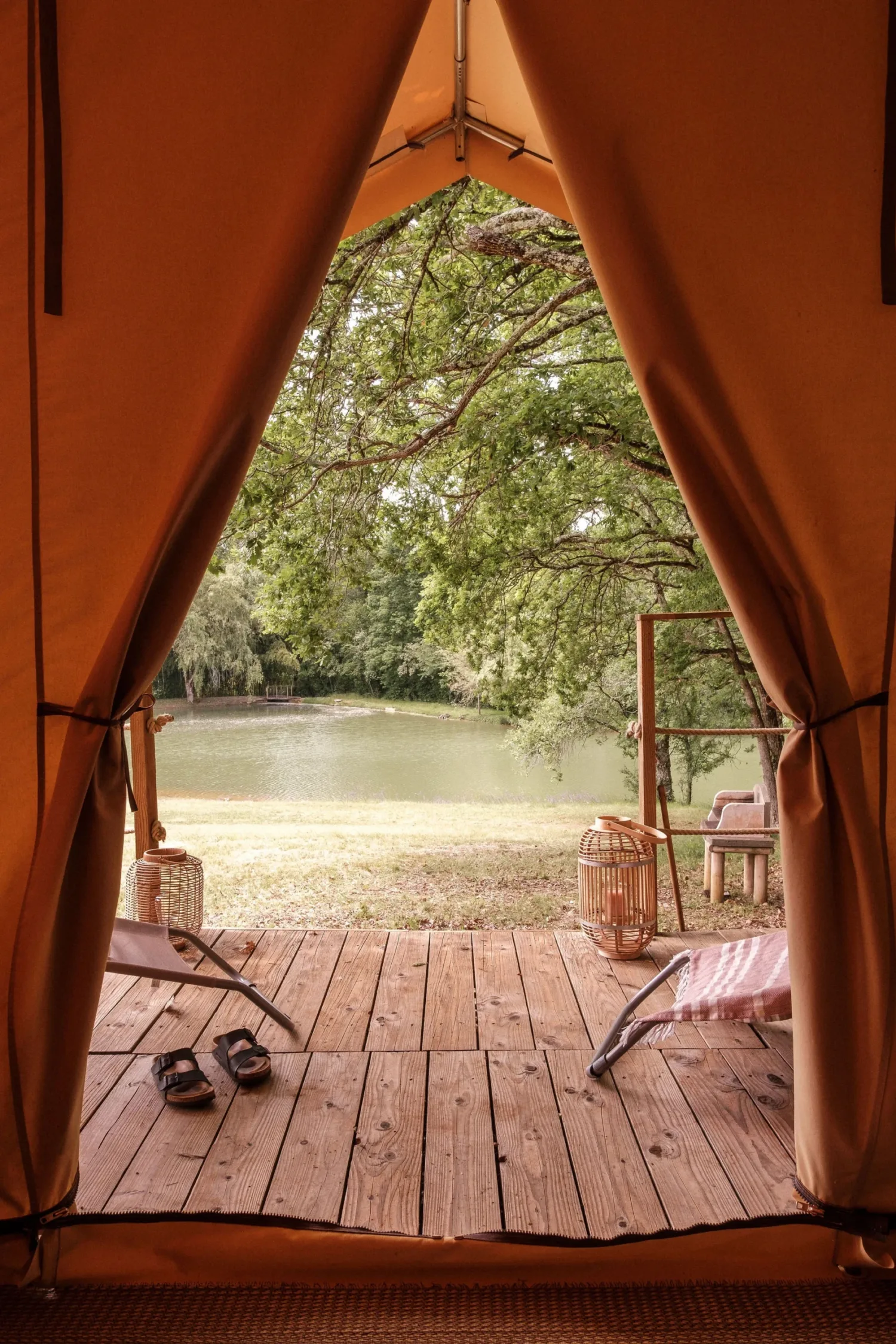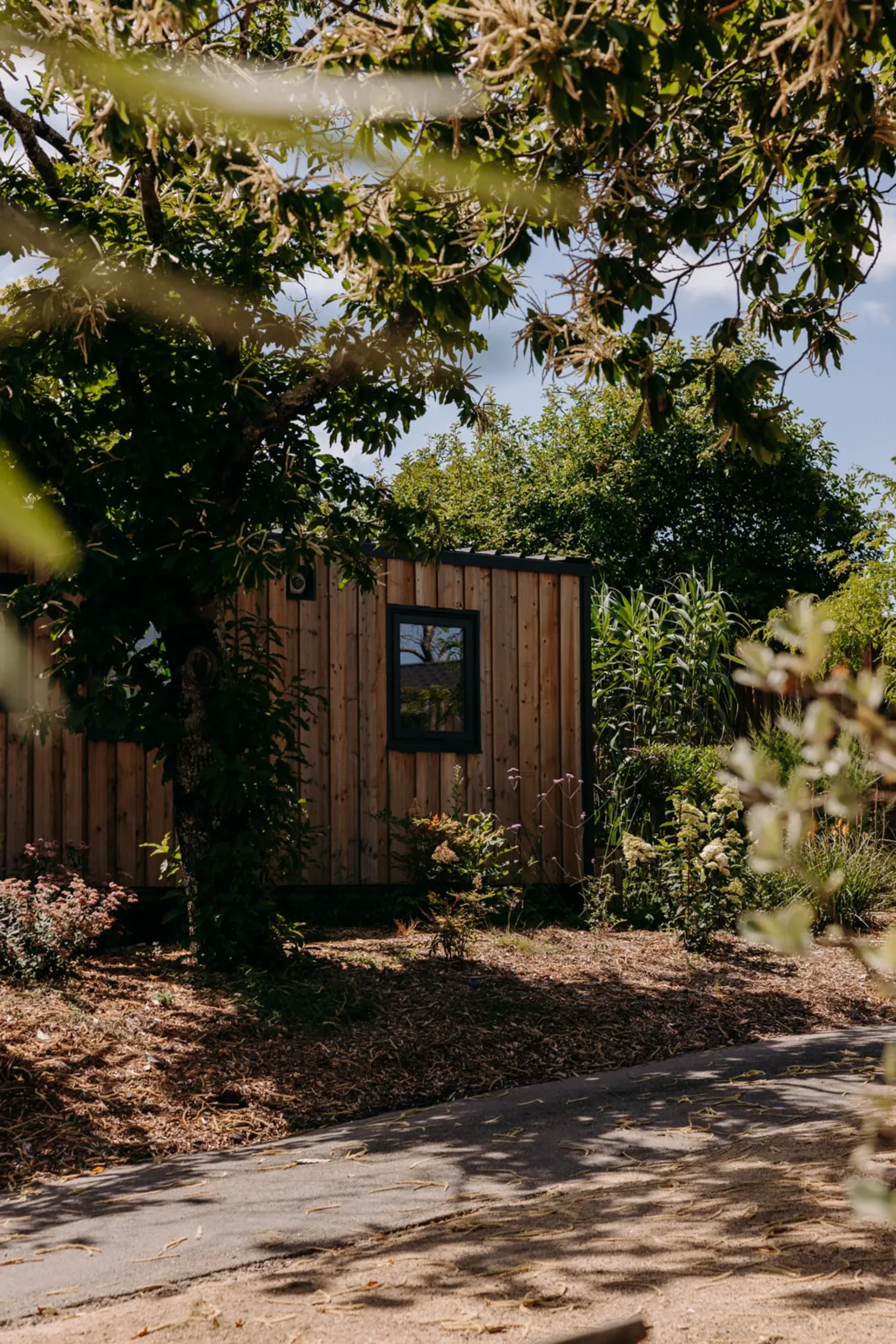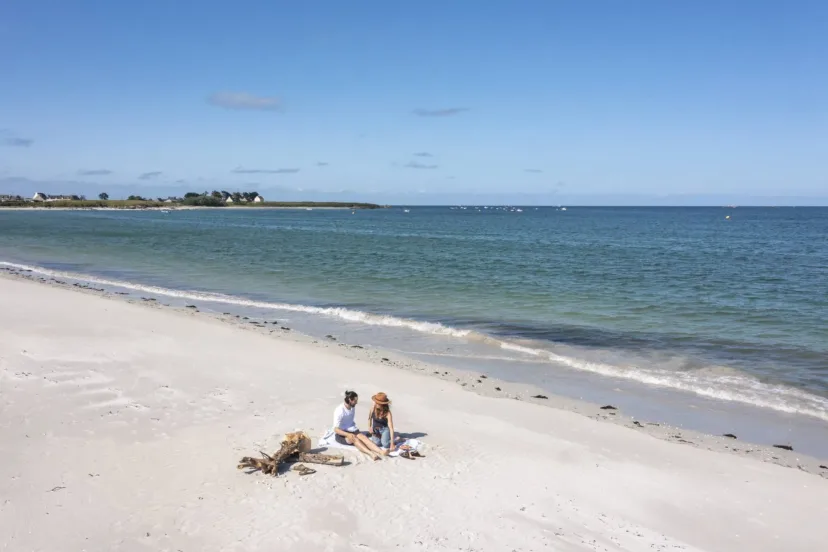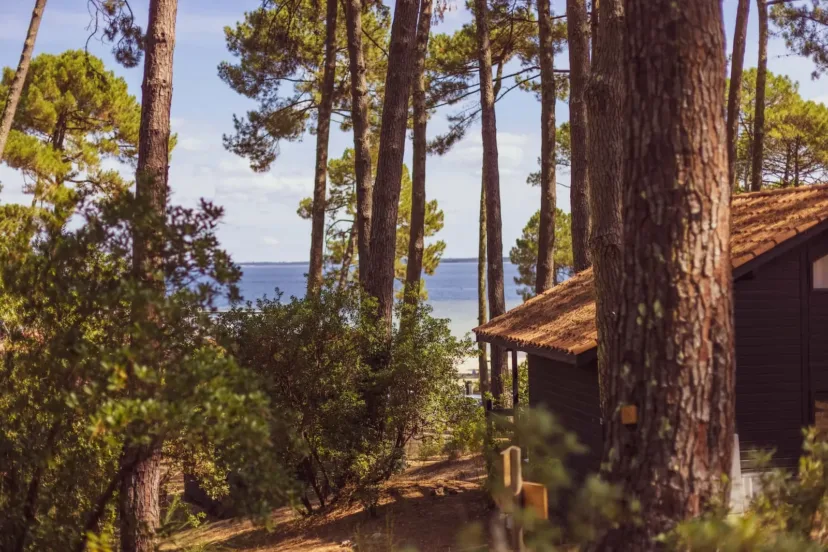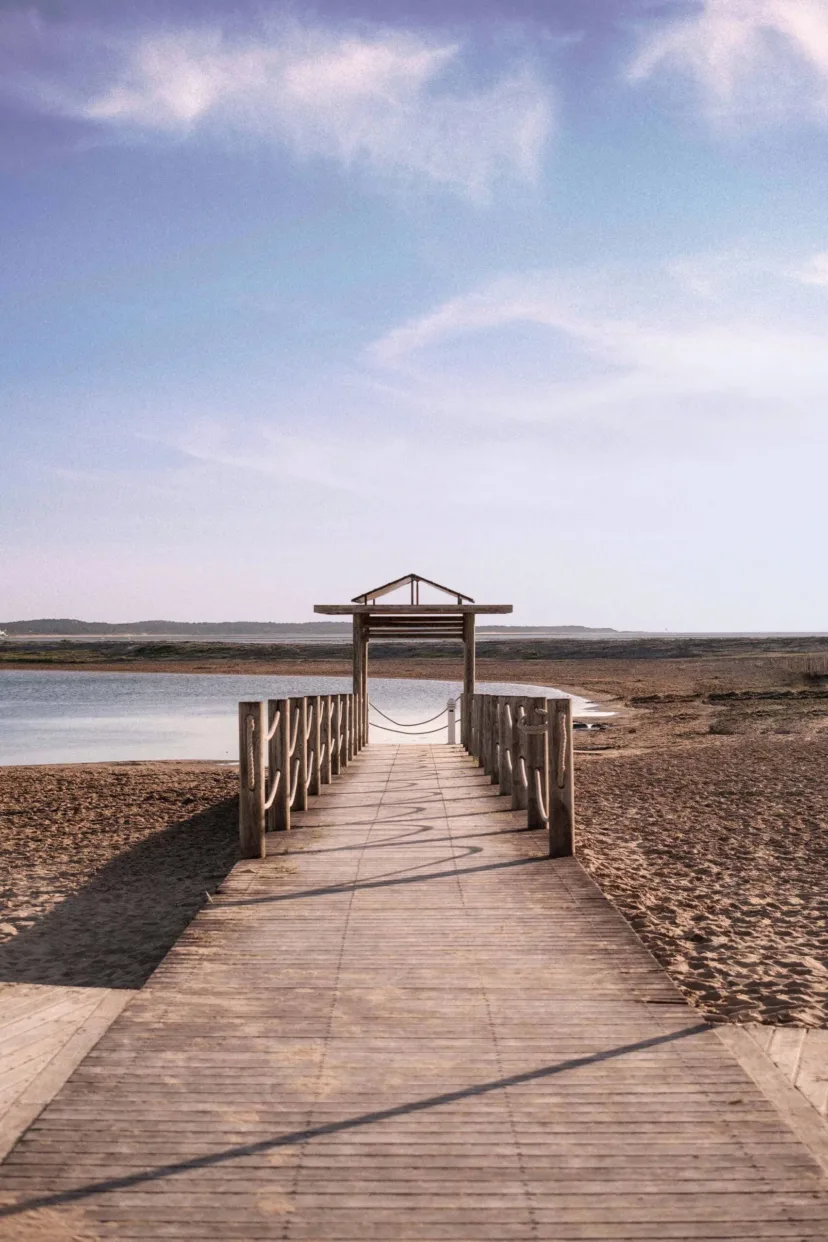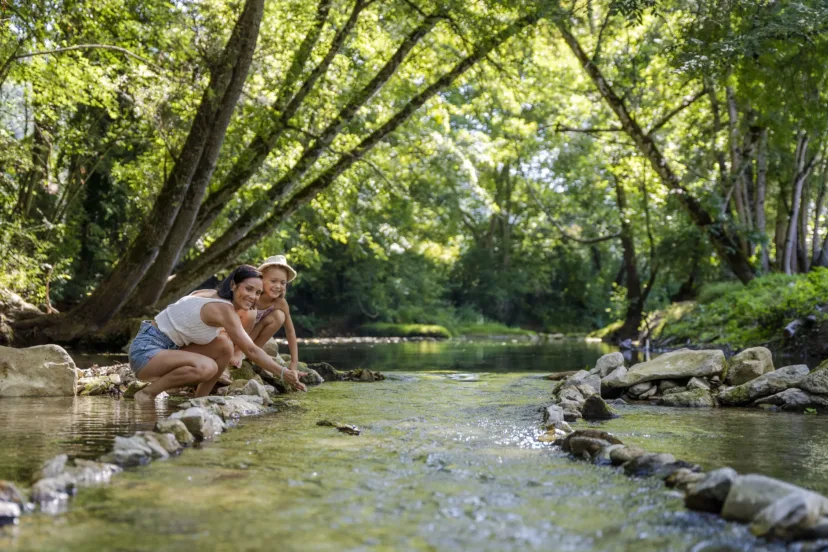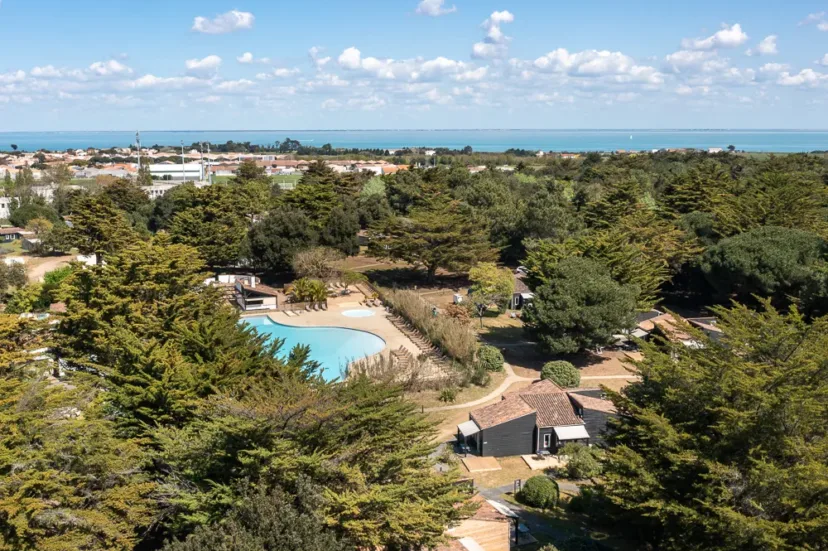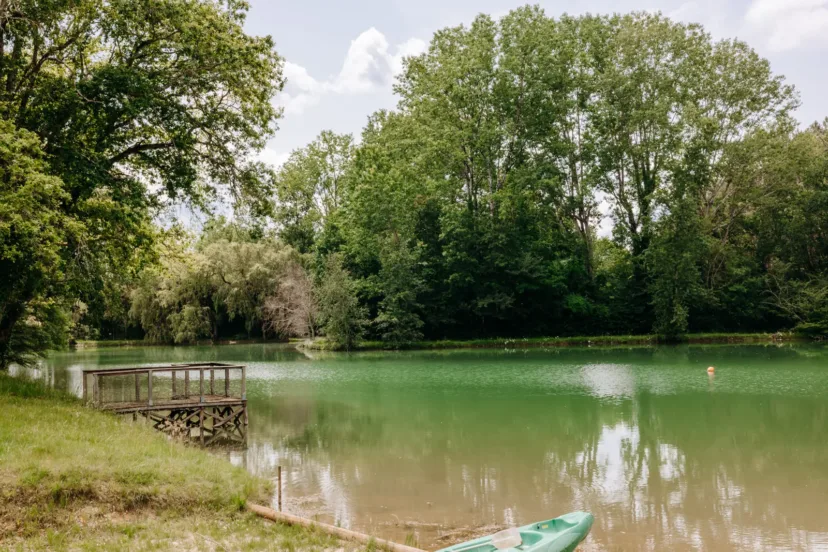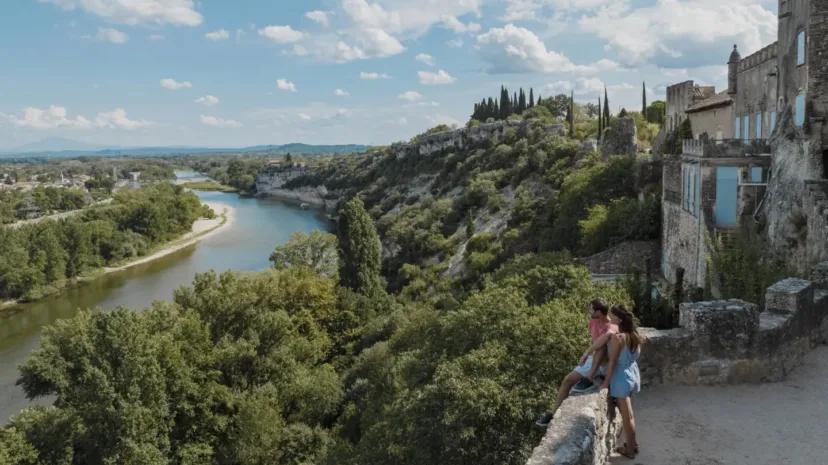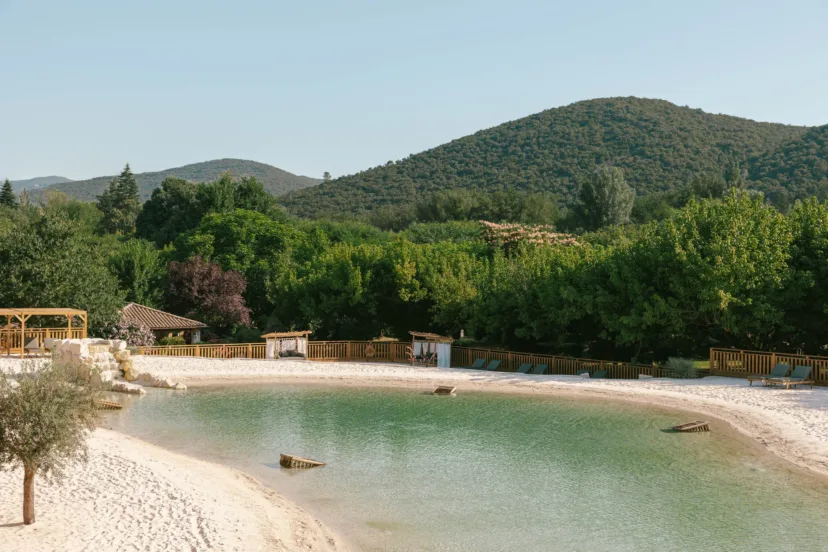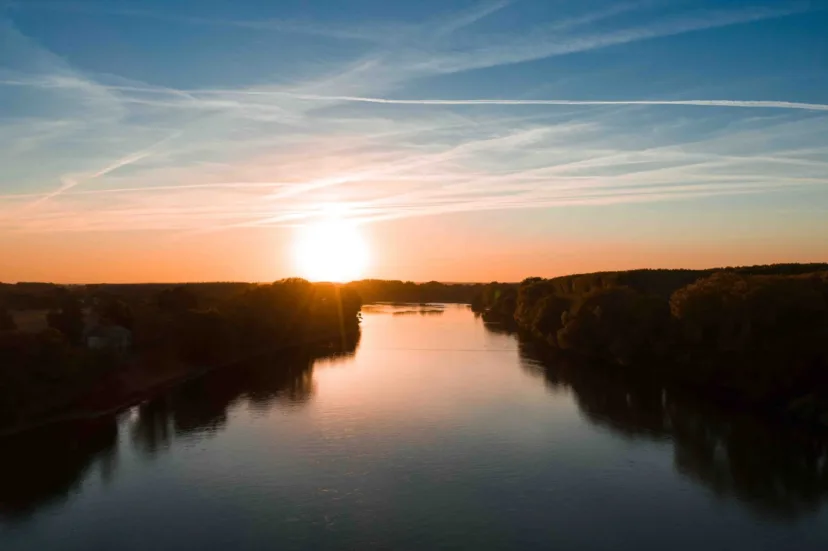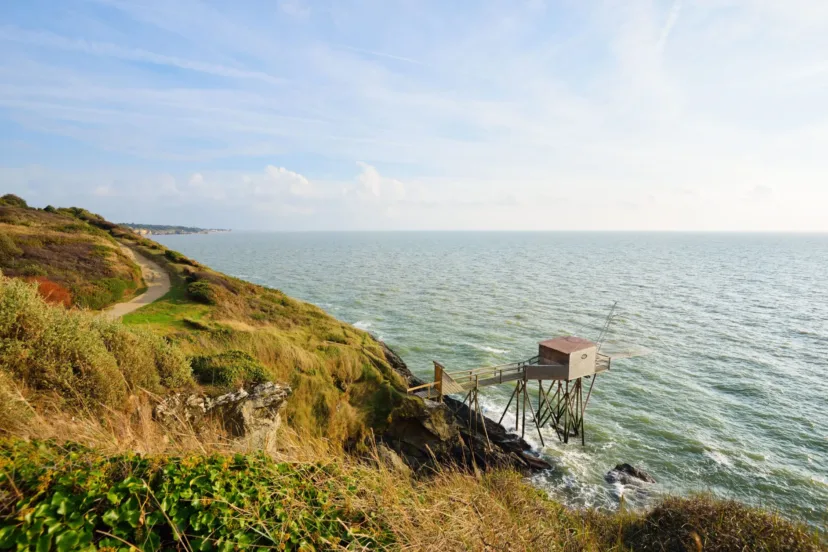Ecological camping

Ecological camping is an increasingly popular approach for outdoor enthusiasts concerned with preserving the environment. With the rise of responsible tourism, more and more people are seeking to reconcile their passion for nature with practices that respect the ecosystem. Ecological camping offers a sustainable alternative to traditional camping methods, with a focus on preserving nature, reducing waste and using natural resources responsibly.
To complete our article on green tourism, discover the fundamentals of eco-friendly camping, the benefits it offers both for campers and the environment, and some practical tips for adopting this responsible approach on your next outdoor adventure. Get ready to discover how to combine the pleasure of camping with respect for the planet!
What is an ecological campsite?
Ecological camping, also known as eco-responsible camping, is a form of camping that focuses on preserving the environment and reducing the ecological footprint. Unlike traditional camping, where the emphasis is often on comfort and convenience, ecological camping takes a sustainable, nature-friendly approach. It's about camping in harmony with the surrounding ecosystem, minimizing negative impacts on fauna, flora and natural resources. By opting for ecological camping, campers can enjoy numerous benefits, both for themselves and for the environment.
What are the advantages of eco-friendly camping?
Eco-friendly camping offers many advantages for both campers and theenvironment. Here are some of the main benefits to consider:
- Reducing environmental impact: ecological camping aims to minimize the negative impact on the ecosystem, notably by reducing water and energy consumption, and avoiding noise and visual pollution.
- Contact with nature: eco-camping reconnects you with nature, bringing you closer to animals, plants and natural landscapes. It offers a more authentic and enriching experience than traditional camping.
- Health and well-being: eco-friendly camping encourages the practice of outdoorphysical activities, which contribute to health and well-being. It also allows you to disconnect from the stresses of everyday life and rediscover a more natural, calming rhythm of life (in line with slow tourism and slow life).
- Raising awareness: ecological camping raises campers' awareness of environmental issues and the importance of preserving nature. This can contribute to a longer-term change in behavior, in favor of more sustainable practices.
By adopting an eco-friendly approach to camping, campers can enjoy numerous benefits, both for themselves and for the environment.
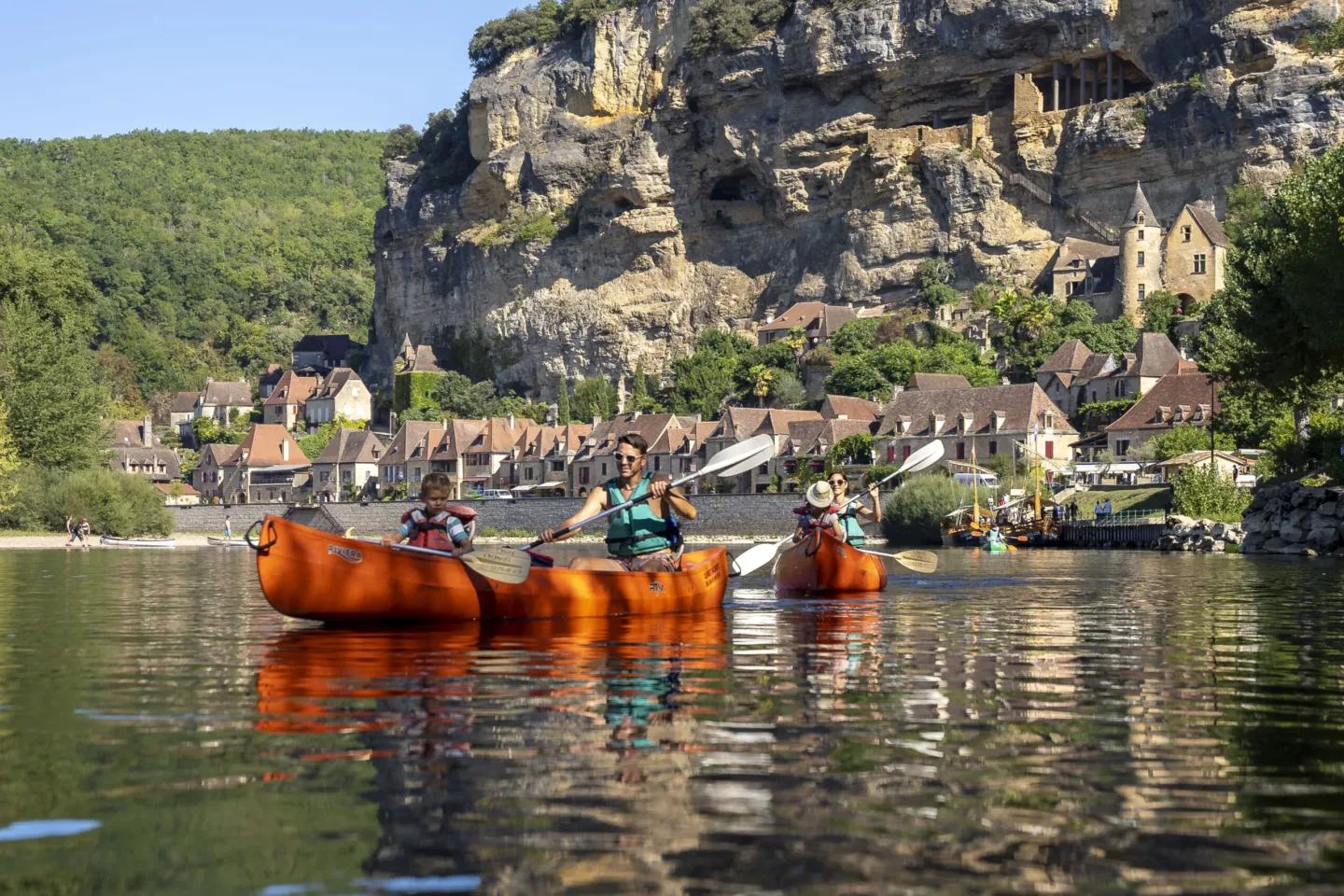
What are the differences between ecoresponsible camping and other types of camping?
Eco-responsible camping differs from traditional camping in a number of ways. Eco-responsible campers adopt respectful practices, such as using renewable energy sources, reducing waste, recycling... They also take care to minimize their impact on the surrounding flora and fauna , avoiding disturbance to natural habitats and complying with current regulations.
In contrast, traditional tourism is often focused on comfort and convenience. Traditional campers may favor modern equipment and facilities, such as caravans, motorhomes and large campsites with extensive infrastructure. They may also be less conscious of the environmental impact of their activities, for example using harmful chemicals to clean, maintain infrastructure and green spaces.
Another major difference lies in the overall approach to camping. Eco-responsible tourism encourages a lifestyle closer to nature, promoting outdoor activities, hiking, respect for ecosystems and the discovery of natural riches. Traditional camping, on the other hand, can be more focused on leisure and entertainment.
How can I camp in an eco-responsible way?
To make the most of your experience, it's essential to adopt an eco-responsible approach. This means taking into account various aspects, such as choosing the right equipment, respecting rules and good practices, and selecting places conducive to eco-tourism.
Ecological campingequipment
If you're mindful of your ecological footprint and want to go green camping down to the smallest detail, it's important to choose the right equipment. Here are a few essentials to consider:
- Eco-friendly tent: Choose a tent made from sustainable materials such as organic cotton or recycled polyester.
- Ecological sleeping bag: Choose a sleeping bag with insulation such as certified wool or down.
- Eco-friendly floor mattresses: Choose floor mattresses made from materials such as natural rubber or cork, which offer both comfort and durability.
- Sustainable cookware: Choose stainless steel or wood cookware from sustainable sources. Avoid single-use plastic utensils.
- Solar lamp: Use a rechargeable solar lamp to light up your camp at night.
- Ecological toiletries: Choose biodegradable products that are free of harsh chemicals.
By choosing eco-friendly camping equipment, you're helping to reduce your ecological footprint.
Rules to follow to avoid pollution when camping
When you're camping, it's vital to take care of the environment and prevent any form of pollution. Here are a few important rules to follow to minimize your impact:
- Pick up your garbage: Don't leave any garbage behind. Make sure you collect all your garbage and sort it properly. Take them with you or dispose of them in the appropriate garbage cans.
- Use biodegradable products: Opt for biodegradable cleaning and toiletry supplies to reduce the risk of soil and water pollution.
- Save water: Use water responsibly. Limit your consumption by taking short showers and turning off taps when not in use. Reuse water whenever possible to minimize waste.
- Respect wildlife: Avoid disturbing local flora and fauna. Don't feed wild animals, and respect sensitive areas where human presence must be limited.
- Preserve natural resources: Use wood responsibly, using only dead wood or alternative fuels for your campfires. Limit energy use by switching off lights and electrical appliances when not in use.
- Respect local regulations: Find out about the regulations in force in the area where you are camping, and respect them scrupulously. Some areas may be protected or have specific rules to follow.
By respecting these rules, you play an essential role in preserving the natural spaces you explore, preserving the Earth's beauty for future generations.
Where can I go camping ecologically?
There are many places in France where you can go camping ecologically, and the Slow Villages offer ideal destinations for this eco-friendly experience. Here are just some of the places where you can find Slow Village in France:
Slow Village Les-Ponts-de-Cé: Soak up the beauty of the Loire Valley, a UNESCO World Heritage site. Camp amid the region's emblematic châteaux and adopt an eco-responsible approach.
A Breizh Légendes: Discover the magic and folklore of Brittany in this Slow Village. Enjoy breathtaking coastal scenery, Celtic legends and the unique atmosphere of Brittany.
Saint-Cybranet: Immerse yourself in the history and gastronomy of the Périgord with a stay here. Camp in an unspoilt part of the region and explore famous prehistoric sites, picturesque villages and culinary delights.
Biscarrosse Lac: Located near the Biscarrosse lake, this campsite offers an exceptional natural setting for ecological camping. Enjoy water sports, sand dunes and the surrounding forest.
Slow Village Saint-Martin-de-Ré: Discover the unspoilt beauty of the Ile de Ré, enjoy the sandy beaches, cycle paths and tranquillity of this unique island while practicing eco-friendly camping.
These examples of Slow Village in France offer the perfect destinations for eco-camping. Whether you want to explore castles, enjoy breathtaking coastal scenery or immerse yourself in unspoilt nature, Slow Village is the perfect choice for an eco-camping adventure.


Our accommodation in


Discover all our articles!
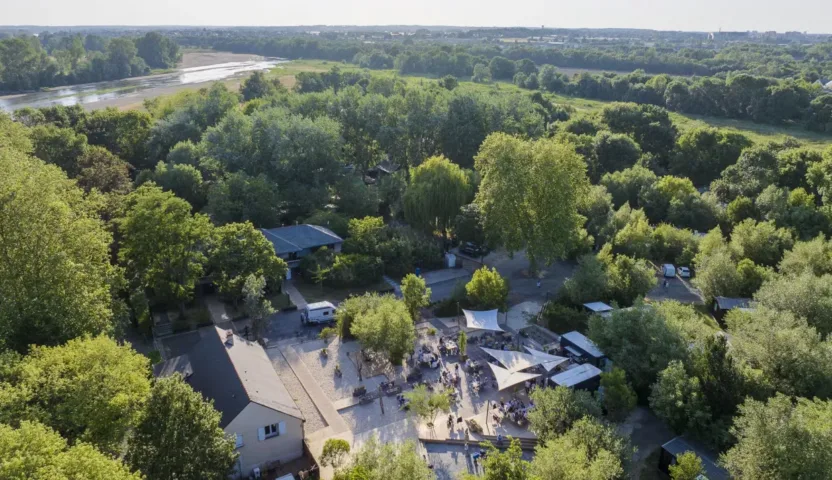
Ecological camping in Angers
Need a real break from the daily grind? Discover our eco-friendly campsite in Angers, France, which promotes Slow Life!

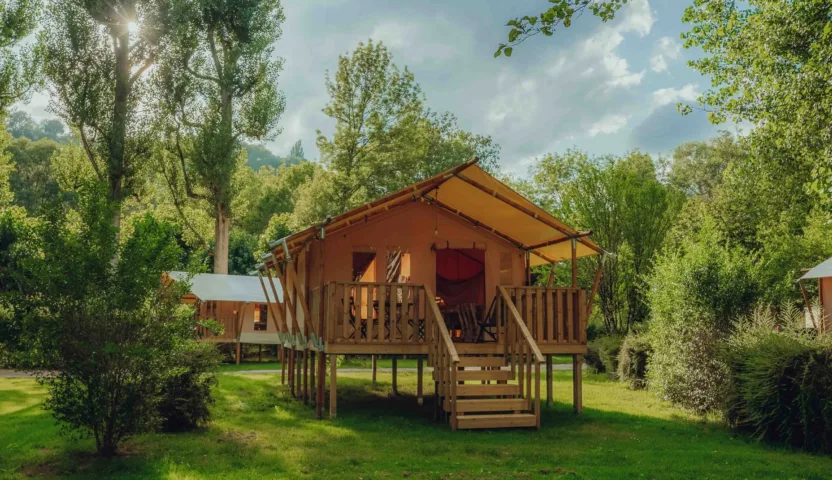
Ecological camping in Dordogne, Périgord
More and more camping enthusiasts are opting for environmentally-friendly holidays. The Dordogne, located in the Périgord region in the heart of the Nouvelle-Aquitaine region, is full of green campsites. Some of them stand out for their sustainable approach and dedication to preserving nature. In this article, we look at the specific features and benefits of an ecological campsite in the Dordogne.

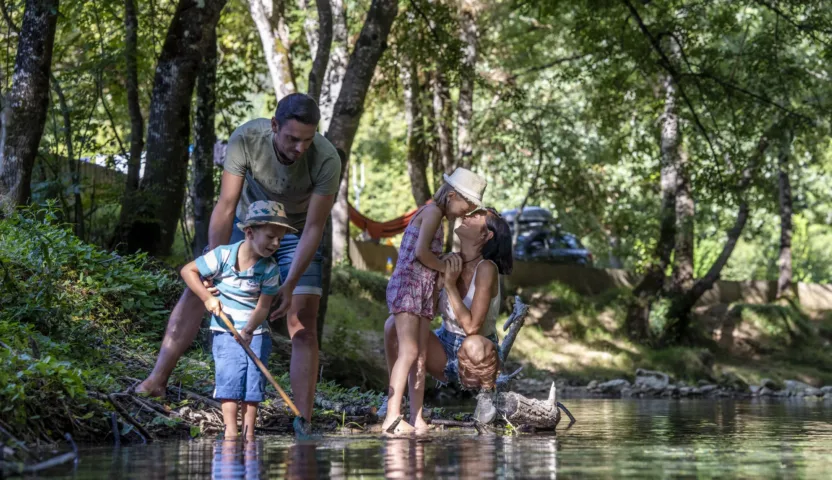
Ecotourism
Eco-tourism is a fantastic way to explore many of our planet's landscapes while doing nature a favor.

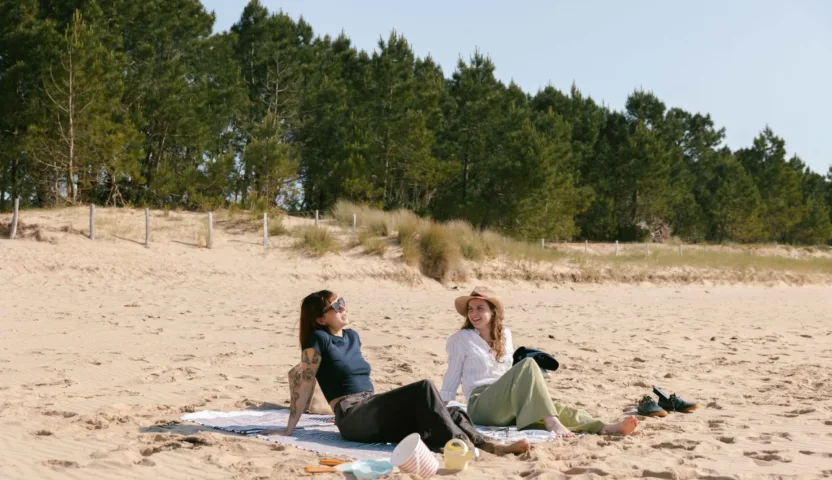
Ecological camping on the Ile de Ré
Are you looking for a rejuvenating vacation in a place surrounded by nature, where you can take time to relax and recharge your batteries?

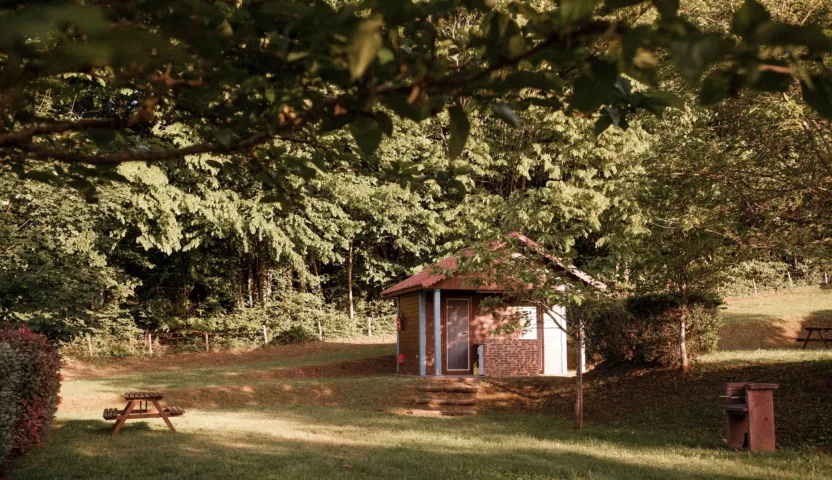
Slow Tourism
At Slow Village, we believe that Slow Tourism is about taking time to travel, fully immersing ourselves in our natural surroundings and rich heritage, and discovering destinations in a deeper, more authentic way.

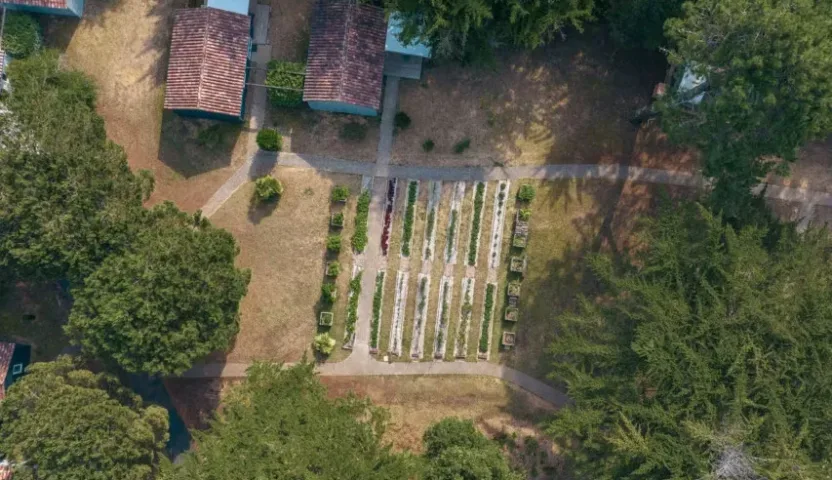
Green Tourism
Green tourism, the responsible alternative for traveling in harmony with nature

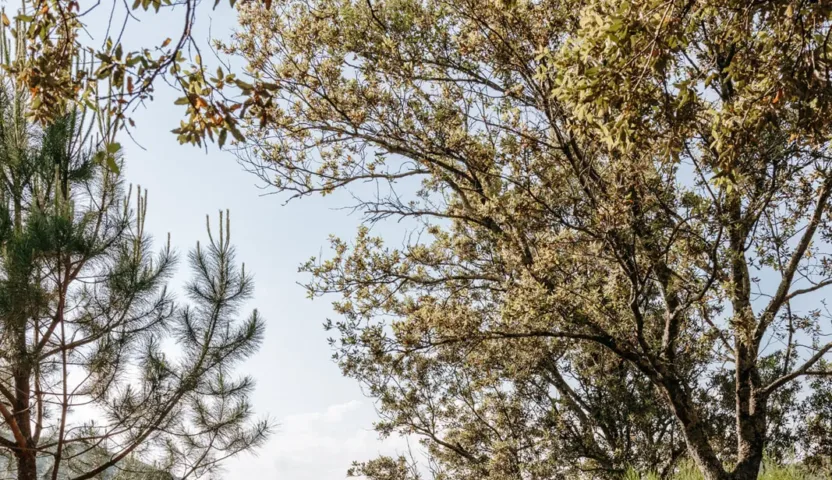
Our commitment to sustainable tourism
For tourism that takes full account of its economic, social and environmental impacts.

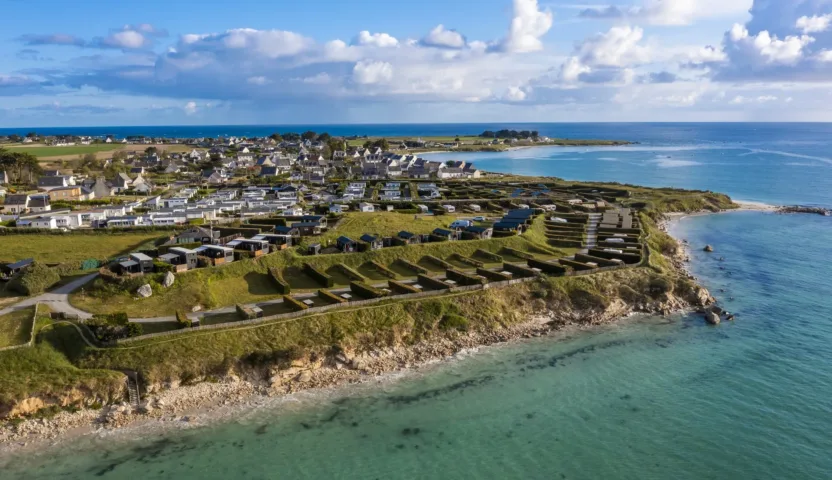
Ecological camping in Brittany
By choosing our estate, holidaymakers opt for a nature-friendly stay, where sustainable practices are at the heart of the experience: rational use of water, efficient waste management, selection of eco-friendly cleaning products and preservation of local biodiversity. Staying at Slow Village means enjoying a green vacation while actively contributing to environmental protection.

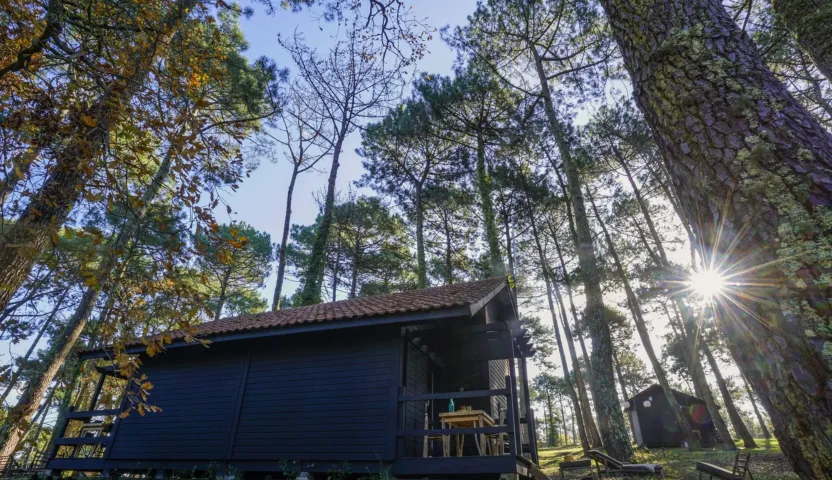
Ecological camping at Biscarrosse in the Landes
Looking for an eco-friendly camping vacation? Discover our Slow Village Biscarosse ecological campsite for a green vacation.

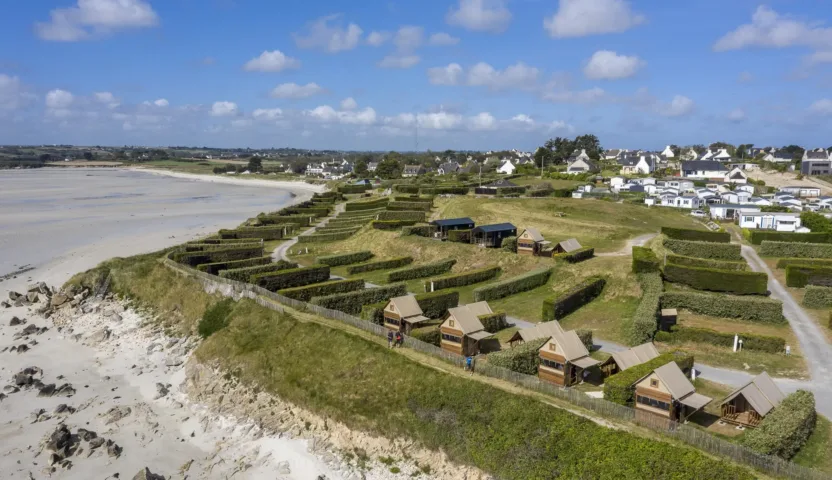
Nature camping in Brittany
In northern Finistère, Slow Village opens the doors of its open-air nature hotel in Brittany. Embrace the slow life and enjoy a dream holiday at Breizh Légendes, between land and sea. From a large cottage to a tiny house for a family or romantic vacation, you'll love our accommodation! As one of Finistère's best-positioned outdoor hotels, we also offer pitches for tents, motorhomes and caravans.

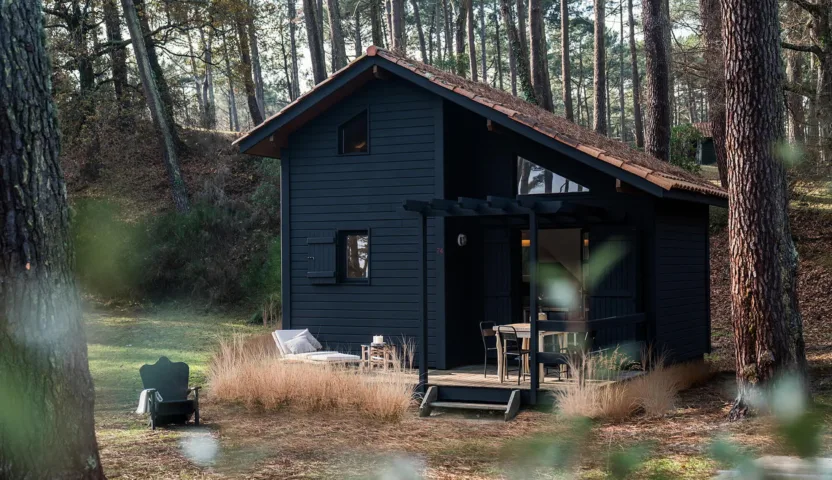
Glamping in the Landes
Looking for glamping in the Landes? Discover our Slow Village Biscarrosse establishment for an unforgettable stay.

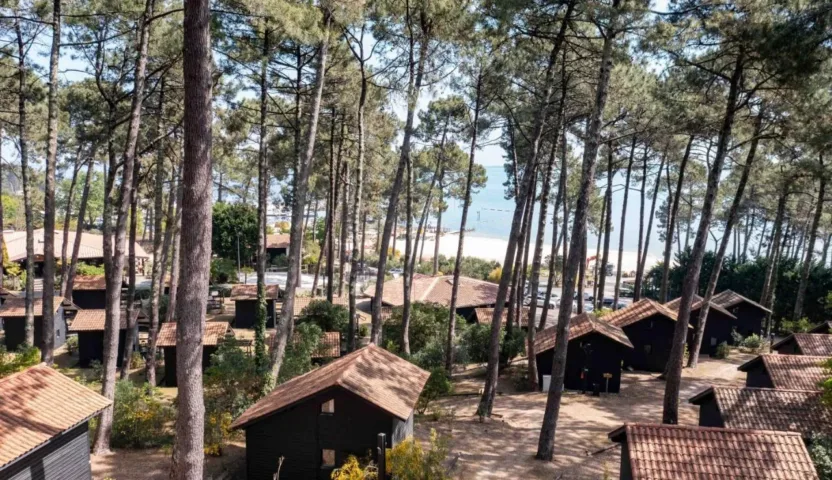
Hut rental
Are you dreaming of an unusual night out with your other half or your family? Perhaps you should consider renting a cabin.

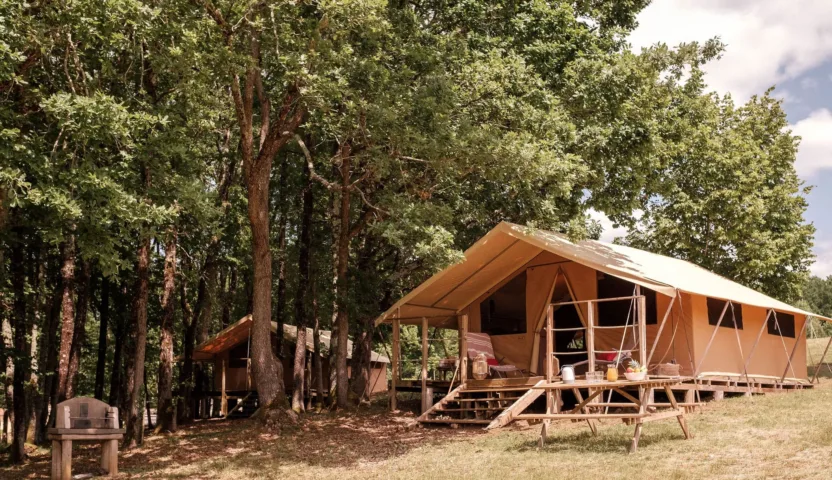
Lodge rental
Looking for a vacation experience that combines comfort, originality and immersion in nature? Then lodge rentals are for you!

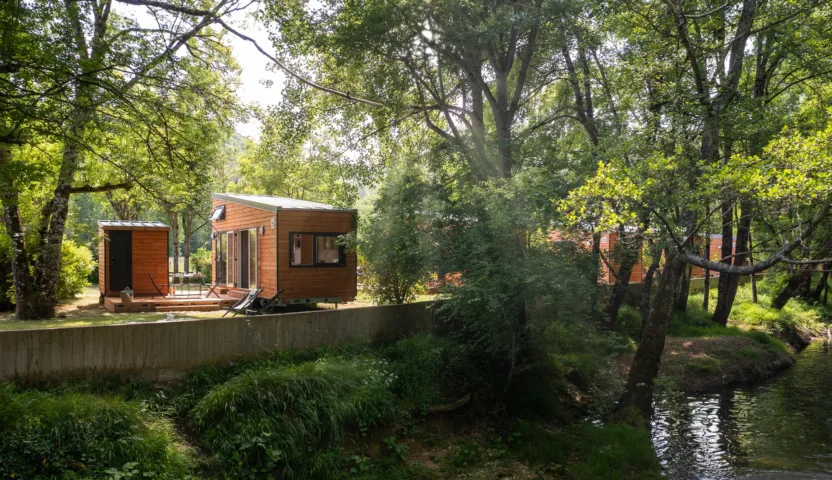
Rent a Tiny House
Tiny houses offer an affordable and economical solution that is more sustainable and respectful of the environment, in line with green tourism and slow tourism.

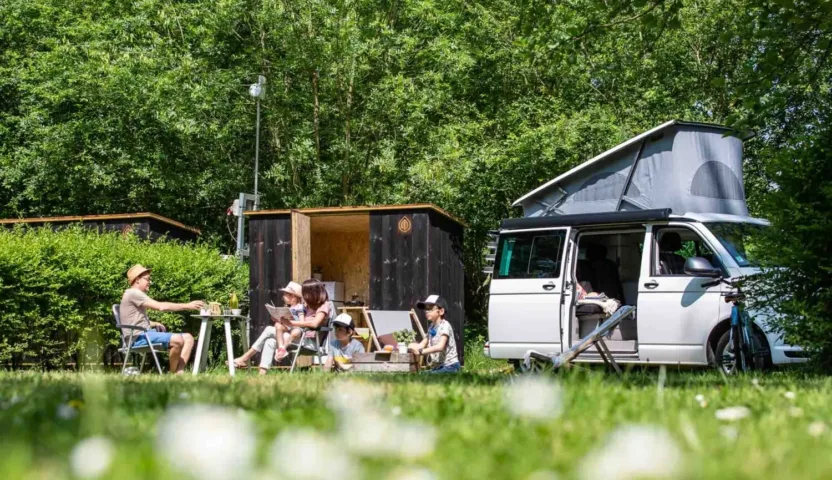
Camping in the great outdoors
Opt now for nature camping with Slow Village campsites. A sure-fire way to spend a serene, relaxing vacation!

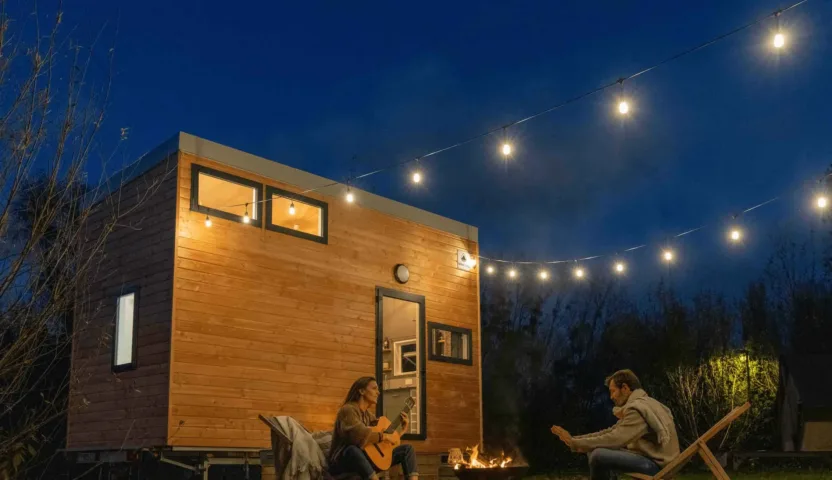
Glamping
Camping, a new trend in nature vacations, is becoming increasingly popular with travellers in search of adventure and comfort.

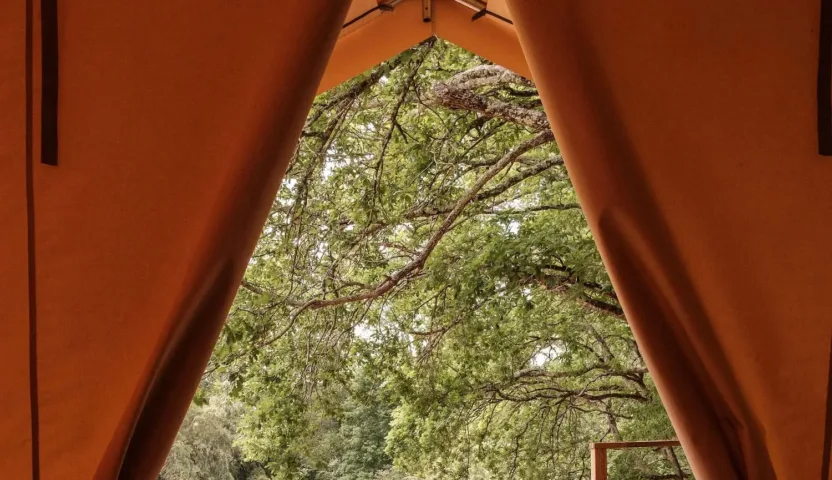
Everything you need to know about glamping!
Glamping, a contraction of camping and glamour, is revolutionizing the world of outdoor vacations.


